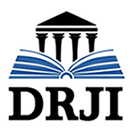QR Code-based Bible Stories Development: Accessing Metaverse for Children Bible Learning Enhancement
Keywords:
metaverse, QR code-based learning, education, research and developmentAbstract
This study aims to develop a learning prototype based on QR codes to enhance Bible learning in Sunday Schools, particularly by integrating mobile-accessible video, augmented reality, and metaverse-based Bible stories for children. Bible education, as a form of lifelong learning starting from early childhood, is traditionally delivered face-to-face in churches, schools, families, and Christian communities. However, engaging with the Bible is often perceived as tedious and abstract, posing a challenge for young learners. To address this, the study adopts the Research and Devel-opment (R&D) methodology outlined by Borg and Gall, which includes ten stages: need assess-ment, planning, early product development, initial testing, product revision, field testing, further revisions, operational testing, final revision, and implementation. Through this approach, the re-search identified the potential and challenges of using QR codes to support Bible learning. The need assessment stage gathered children’s informational needs, guiding the development of a QR code-based prototype. This prototype allowed students to access rich multimedia content—videos, augmented reality, and metaverse experiences—using their mobile devices. The findings suggest that QR code-based Bible learning can increase motivation, facilitate access to Bible stories anytime and anywhere, and support teachers by providing engaging digital resources tailored to children’s learning needs.





